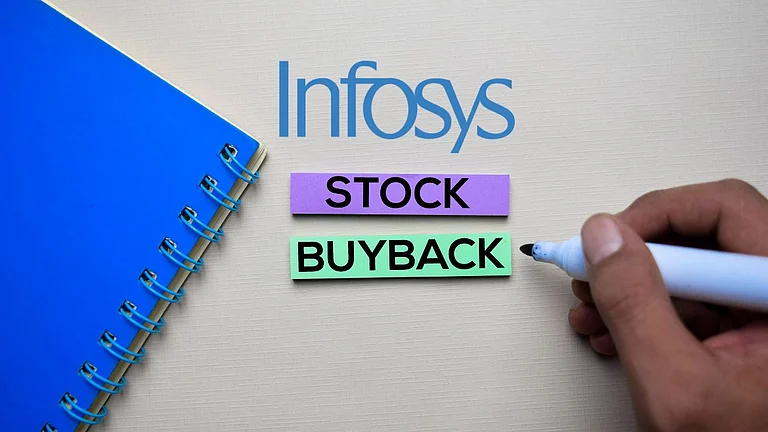Infosys’ Rs 18,000-crore share buyback is currently underway, and investors have time until November 26 to tender their shares. After the window closes, Infosys will review all the bids. The company will announce the final acceptance on December 2, how many shares have been accepted from each investor based on entitlement and the extent of oversubscription.
Infosys Share Buyback: Rs 18,000-Crore Offer Oversubscribed, Here’s How Much Tax You Will Pay If You Tender Your Shares
Infosys Share Buyback: The IT giant’s Rs 18,000-crore buyback has attracted far more bids than the shares on offer. Here’s what investors need to know about the tax they will have to pay if they tender their shares
Settlement will take place on December 3 when investors will get the money for the accepted shares, and any unaccepted shares will be returned to their demat accounts. Infosys will extinguish the accepted shares by December 12, removing them permanently from circulation.
Infosys Share Buyback 2025: Key Details
Infosys plans to repurchase 100 million equity shares through the tender offer route on both the NSE and BSE. This represents 2.41 per cent of its paid-up capital.
The IT services company has fixed the buyback price at Rs 1,800 per share, a 15 per cent discount to November 25’s closing price of Rs 1,530.60 on the NSE. The record date to determine the eligible shareholders who can participate in the buyback was November 14. Therefore, shareholders who were on the company’s books as of November 13 are eligible to participate.
For small shareholders, Infosys has reserved 15 million shares, giving them an entitlement of 2 shares for every 11 held on the record date. In the general category, 85 million shares have been allocated, which works out to an entitlement ratio of 17 shares for every 706 held.
Infosys Buyback Subscription Status
As of 4:30 pm on November 25, the buyback has received bids for about 226.63 million shares, more than twice the number on offer. Given the oversubscription, the final acceptance will be proportionate within each shareholder category.
Tax Treatment On Infosys Share Buyback
The tax rules for share buybacks changed from 1 April 2024, and this affects anyone tendering shares in Infosys’ ongoing buyback. To understand the tax implications, we touched base with Sameer Gogia, executive director – tax, Deloitte.
Earlier, companies had to pay a 20 percent buyback tax, and the money shareholders received was fully exempt from tax. That system is no longer in place.
Now, any amount received from a buyback is treated as a deemed dividend in case of shareholder. This means the entire payout will be taxed at the shareholder’s income-tax slab rate. The company will not pay any tax, but deduct TDS, however the investor will pay tax on it.
For an Infosys shareholder taking part in this buyback, the full amount received will be taxed as dividend income. No deduction is allowed for the cost of buying the shares.
The cost of acquisition becomes a capital loss. This loss cannot be set off against the buyback income, but it can be carried forward for eight financial years and adjusted against future capital gains. However, in case of non-resident shareholders, based on language of respective DTAA with India, a position to claim buyback as capital gain/loss may be explored. Further, the payer company is liable to apply TDS based on residential status of payee.
Let us understand this with an example.
Suppose an investor bought 100 Infosys shares at Rs 1,400 each. Their total cost of acquisition comes to Rs 1,40,000. The investor decides to tender all 100 shares in the current buyback, where Infosys is offering Rs 1,800 per share. As a result, the investor receives Rs 1,80,000 from the company, subject to TDS.
Under the new tax rules, the entire Rs 1,80,000 received from the buyback is treated as dividend income. This amount will be taxed at the investor’s income-tax slab rate. The investor is not allowed to deduct the original cost of buying the shares while calculating tax. So, the full payout becomes taxable income.
The cost of acquisition, Rs 1,40,000 in this case, is treated as a capital loss. This loss cannot be adjusted against the buyback income. However, it can be carried forward for up to eight financial years. The investor can use this capital loss to reduce their future capital gains from the sale of shares, mutual funds or other assets.
